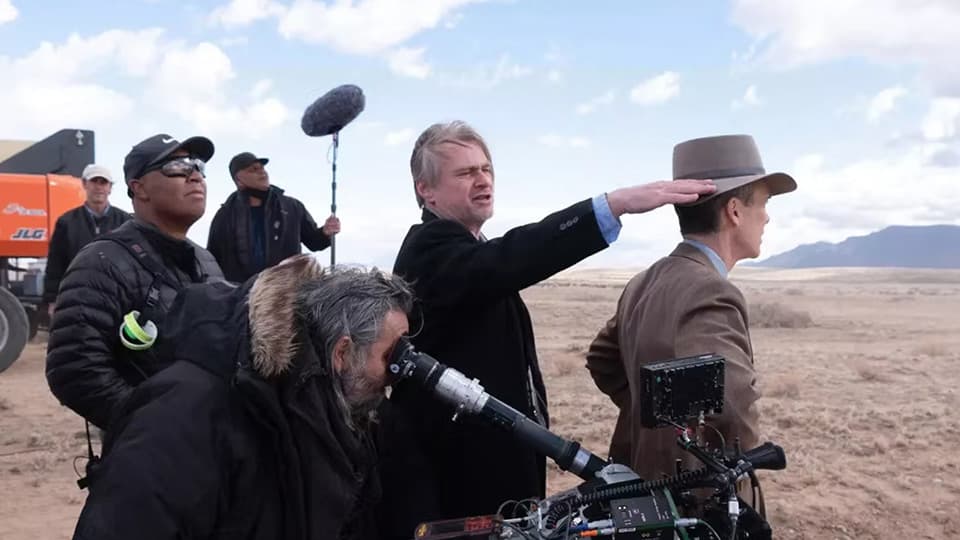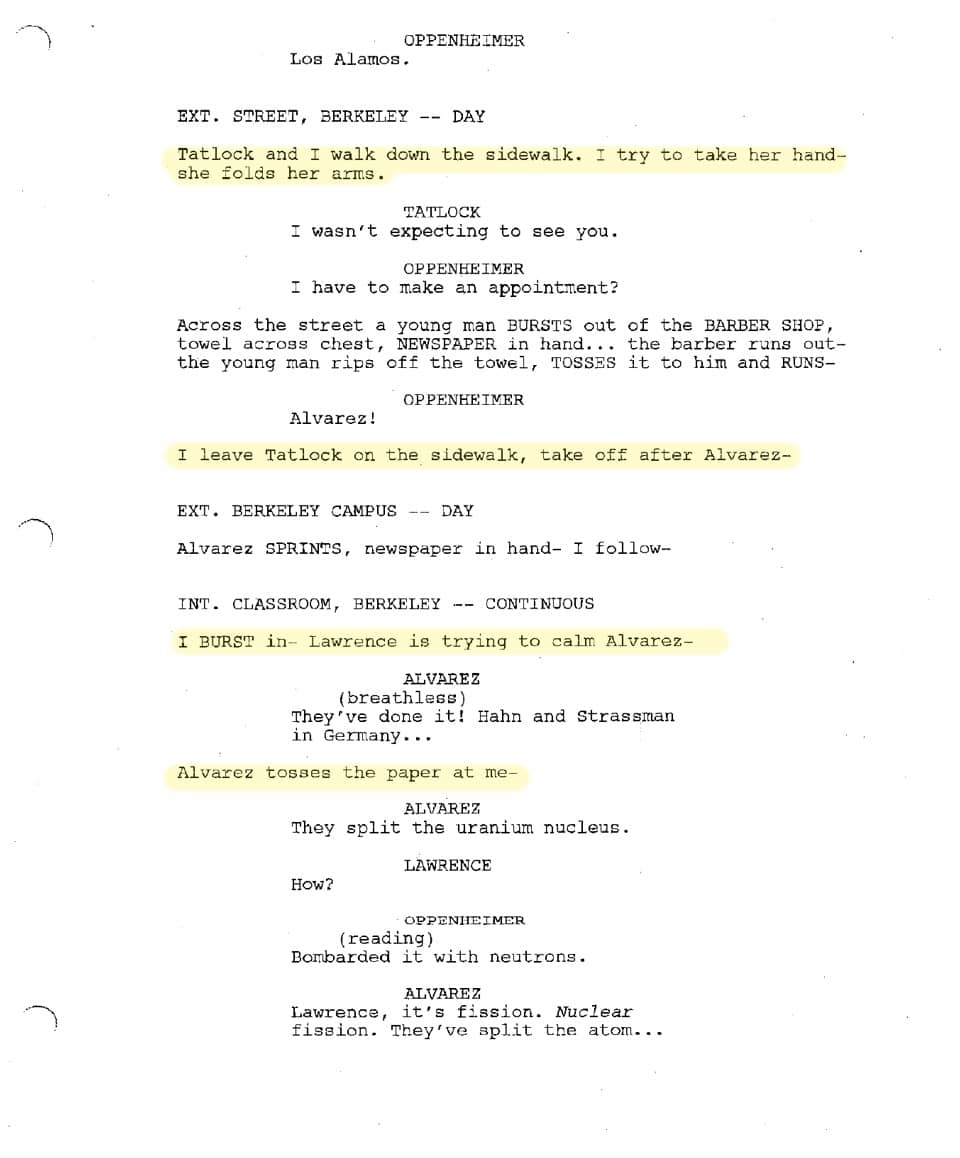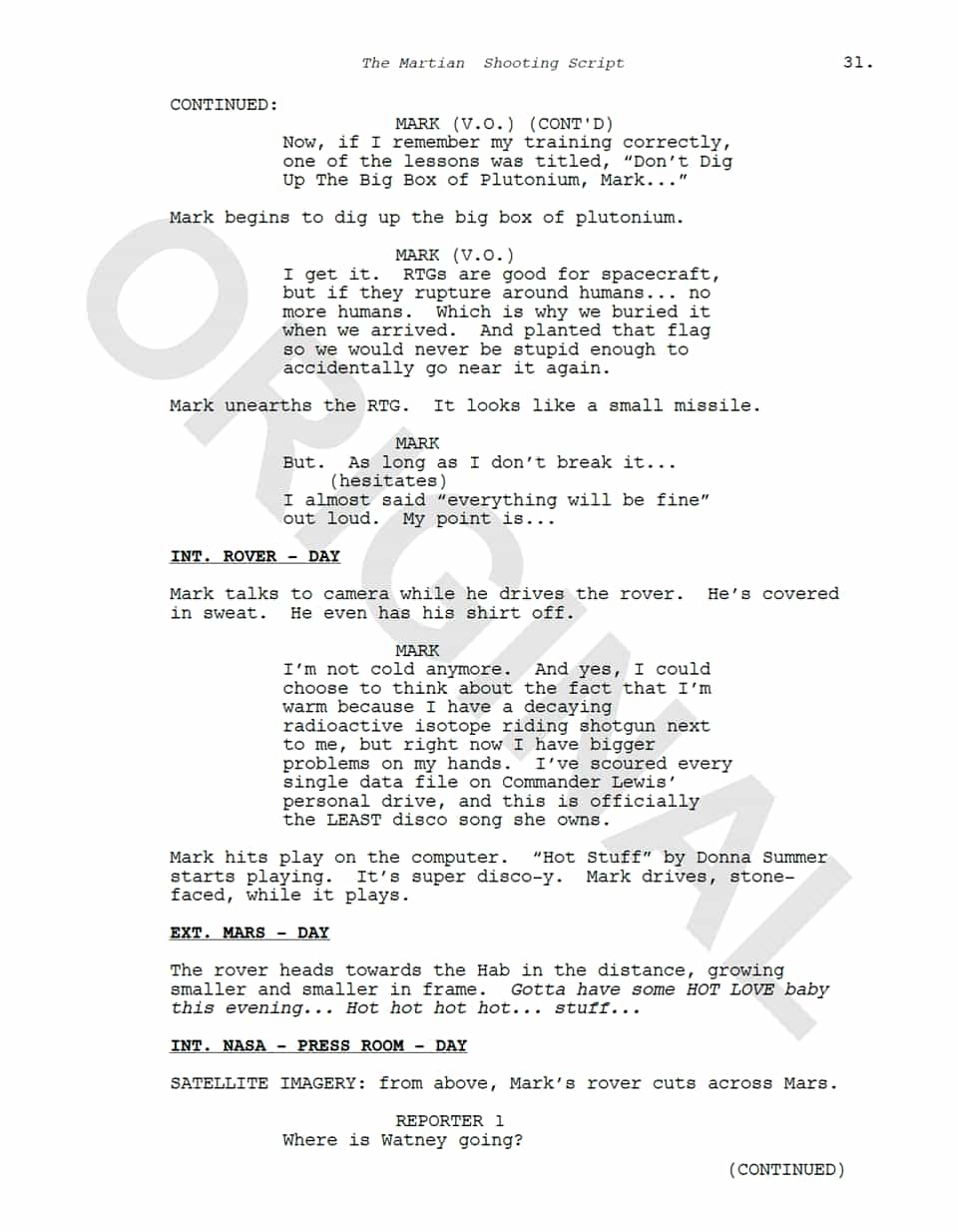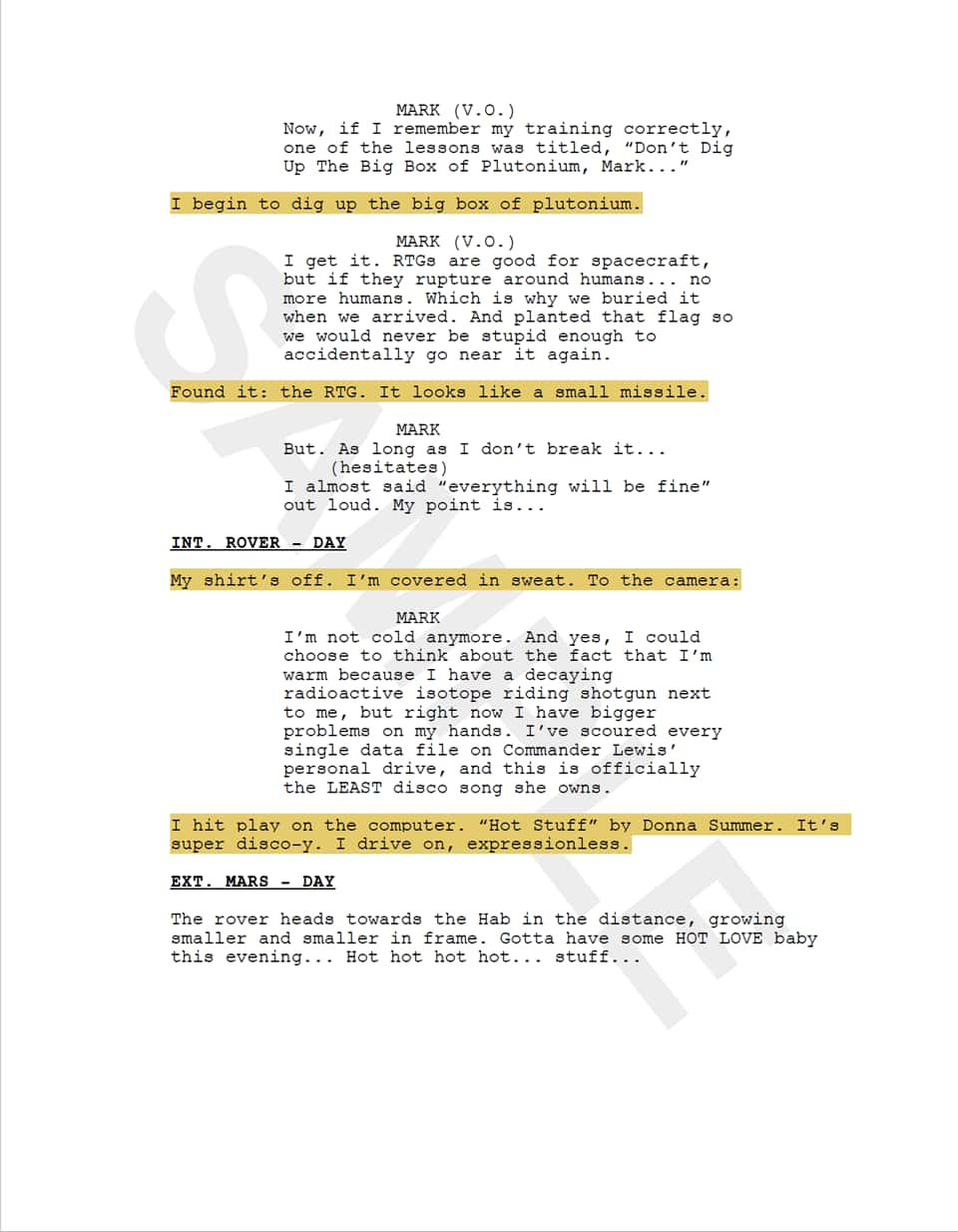Christopher's Nolan's "Oppenheimer" Screenplay is NOT All Written in the First-Person
So why are some saying it is? And, more importantly, why are they making such a big deal of it?
I read the screenplay... several times. In fact, I read the screenplay before watching the film. Then I scrutinized the screenplay while watching the film. And then I repeated the process several times over. Not only is Nolan's script extremely well written, but the film is a masterpiece. But I can't help but wonder why some... some screenwriters have made such a big deal about the writing?

By: Nick
(Evil*) Editor-in-Chief, 8FLiX
*as presumed by some "Stranger Things" stans, and maybe also The Duffer Brothers.
The First, First-Person: 'In the Beginning'
A brief history lesson.
About 1,000 years ago, Japanese noblewoman Murasaki Shikibu created a manuscript -- "concertina" (or, orihon style) -- and called it "The Tale of the Genji". The third-person narrative tells us about a man's numerous failed relationships and his apparent problem with commitment. Relatable, right?
But, about 3,000 years ago (insert sardonic tone) something called "The Old Testament" was created. Without getting into the Bible's "single author theory", therein lies one of the earliest examples of first person POV. Considered to be created around 900 BC, "The Song of Solomon," Chapter 1, Verse 2 reads: "Let him kiss me with the kisses of his mouth: for thy love is better than wine." (KJV)
Although that mumbo-jumbo about "love" being "better than wine" is debatable, the clear first-person narrative is not.
Many novels are written in first-person, so why not screenplays?
Back in my youth, there were these buildings called "libraries." Imagine if Amazon.com was the world's biggest book store, except they weren't a store, and they let you borrow books to read... FOR FREE! That's basically what a library is.
Take a look at some of the Chicago Public Library's book recommendations that are written in first-person POV. On the first page of recommended titles, four of them are now major motion pictures. And one of them is a favorite of mine, "The Martian." Let's take a look at what the screenplay would look like if it were written similarly to "Oppenheimer."
The "Gadget" is No Gimmick
Before we get to Mars, let's take a closer look at the "Gadget."
* Originally published on r/Screenwriting
I said earlier that I'd read the script and watched the film... and repeated the process again and again. A few observations:
First, apologies if my interpretations seem condescending to writers. My intention is to not alienate beginners with too much "shop talk", while at the same time encouraging the pros to add their commentary.
How to make sense of the Oppenheimer" screenplay.
So, there are two narratives: 1) Fission (Oppenheimer's) told in color and written in first person POV; and 2) Fusion (Lewis Strauss') told in black and white (which is italicized in the script) and in the traditional third person POV (some of the action blocks refer to the first person "we", but only in reference to shots and/or transitions; ie: "...hat rolling across the grass to where Oppenheimer SCOOPS it up, and we... CUT TO: INT. ROOM 2022....).
I've read some articles, etc., about Nolan writing in the first person. Honestly, I'm not sure what all the, I dunno, "ruckus (?)" is about. Unique for screenplays, yes, but so what? Grant it, I am an idiot, but I find first-person narrative easy to absorb. I wouldn't mind seeing more biopics written like this. What say you?
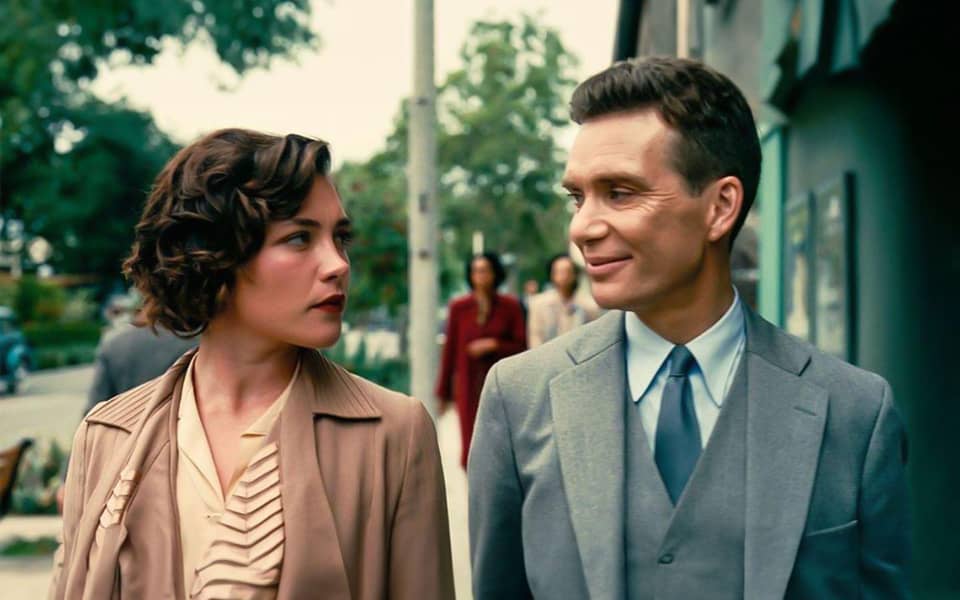
"Oppenheimer" screenplay is close to 200 pages.
197 pages typically does not render a 180-minute runtime -- even for a fast-paced Nolan film. Cillian Murphy said (apparently) there are "no deleted scenes." He may be right; however, in the script there are a number of "extended" scenes, per se, that were obviously cut before picture lock. I assume because no one would sit through a 3.5 / 4-hour movie. Let me explain:
Ironically, on the very first page, Oppenheimer says: "This answer is a summary of relevant aspects of my life in more or less chronological order...". Comparing the script and the movie side-by-side, the film editing should be nominated for a few awards. The way Jennifer Lame (she also edited Tenet) uses 2/8 of a page of characters' dialogue, spreading it seamlessly over 3 or 4 different scenes, with different timelines, throughout the film is extremely well done.
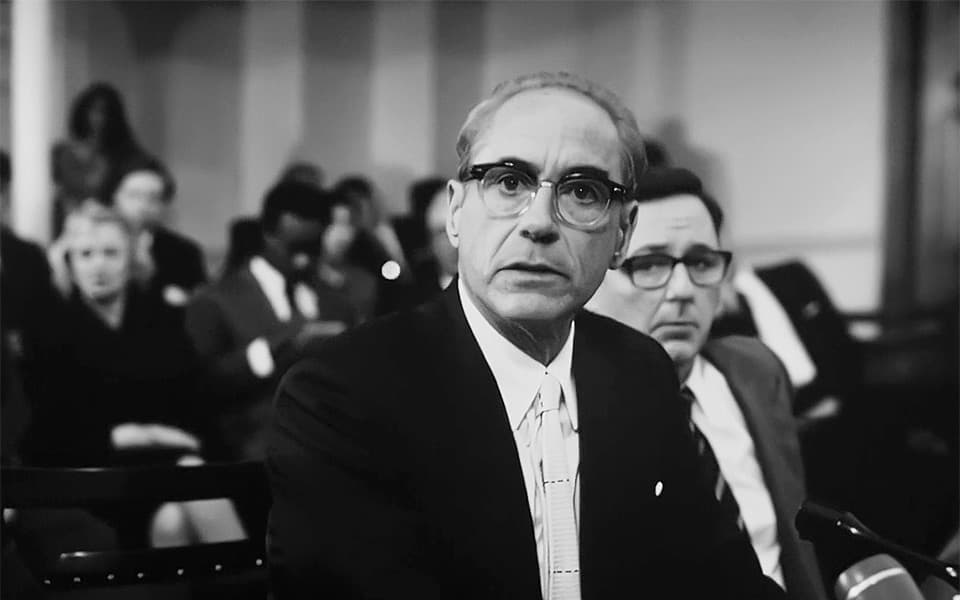
No one was spared.
Dialogue from nearly every character was cut out or shifted around in some way. A sentence... a few words, no one was spared. Dr. Hill's (Rami Malek) testimony before the Senate is about 3-pages (combined) of dialogue in the script. The film, however, features less than 1-page (combined) of Hill's dialogue.
I don't read a lot of Nolan scripts, so maybe this style is his trademark, or a poor interpretation on my part. IMAO, it's impressive. Maybe it also speaks to the brilliance of the writing... change the sequence of scenes, but the linear narrative remains intact and it's still chronological. There isn't much wiggle room for actors to veer off-script or ad-lib lines.
It's like "Poetry."
I once asked Rich Sommer (he played Harry Crane in Mad Men for seven seasons) how he felt about delivering his lines verbatim... as it's written. He told me, "I remember a teacher saying something about Shakespeare, that you can’t pull his words down to you, you have to rise to meet the words."
Sommer also said that the writing on "Mad Men" was "poetry", and rarely did he drift from what was written on the page (even if the actors were "allowed").
I think this applies to "Oppenheimer." I noticed that there is very little deviation from the page. As a writer, I strongly believe this is a compliment to the writing. RDJ, Damon, Murphy, they were nearly always spot-on with their lines. "Near zero" driftage.
It's an excellent script, but I don't think it'll get Nolan an Oscar. I'm thinking best picture, director, sound, editing, cinematography, actor(s), are the top picks. RDJ, Damon, Murphy, and Clarke will all be nominated, and at least one of them should win an Oscar.
Team Oppie vs Team Strauss
Okay, if you're still reading, I'll briefly opine about why I think Nolan labelled the opposing narratives as he did. There are probably several reasons, none of which I know. But I have made my own conclusions, which kinda make sense.
They are basically metaphors. "Fission" and "Fusion" are completely different; polar opposites -- much like the characters each process represents (personality, political views, etc.). Also, the meaning of the words themselves seem to fit each person's narrative and arc (division [fission] vs unity [fusion])... and vice versa.
Conversely, like quantum mechanics, it's paradoxical. The film's color palette is an example (color [fission] vs. black and white [fusion]). Fission is a much simpler process than fusion, however color is more complex than black and white. Robert Oppenheimer was a complex man; by no means did he see the world as just black and white. He designed the A-bomb, but wanted noting to do with the H-bomb. He was loyal to a fault, but constantly cheated on his wives. Confused yet? Welcome to Christopher Nolan's mind.
"The Martian" Screenplay... If It Were Like "Oppenheimer"
Yes, "The Martian," written by Andy Weir, is first-person. Even though there is no evidence that Mr. Weir has been to Mars (or that he is a Martian), the book is written as he if were the protagonist: Mark Watney.
The first example (with the watermark: ORIGINAL) is page 31 of screenwriter Drew Goddard's screenplay. The second example (with the watermark: SAMPLE) is the same screenplay, however Mark Watney is telling his own story through the action blocks.
In my opinion, they're both acceptable and they both get the same point across to the reader. However, it's Watney's telling that has more of an impact. At least I think so.

So what would "The Martian" script look like if were written like "Oppenheimer"?
Basically the same. Take a look. (In the "SAMPLE" version, I rewrote the Mark Watney action blocks in first person POV)
Is This the Start of a New Trend in Screenwriting?
If you're a new screenwriter, stick to what works.
As demonstrated in "The Martian" sample above, one can write first-person without noticeably affecting the final product.
And that's my point. That's why I went through this entire exercise. It can be done, and it can work. It makes for a smooth read, and the moviegoing audience won't notice the difference (if they even care).
If you've read enough screenplays then you know as long as the basic foundations of screenwriting are followed, and filmmakers can understand the story one is telling, then taking a few short-cuts is entirely acceptable.
Christopher Nolan's "first person POV" style of telling Oppenheimer's story worked, but if you're still learning how to write screenplays then just stick to what you know. There's plenty of time to break ground with new and innovative styles. Be patient. Keep reading. Keep writing.
Like what you see at 8FLiX? Help keep this site free. Visit a sponsor.
8FLiX is free because of the generous support of writers and visitors, like you!
Yes, ads suck. And if I could afford it, I'd remove all ads from 8FLiX. But for now, we need them to survive. Please consider that when visiting 8FLiX and downloading the screenplays we make available. Visit a sponsor, and maybe even spread the news about 8FLiX on your social media accounts.
